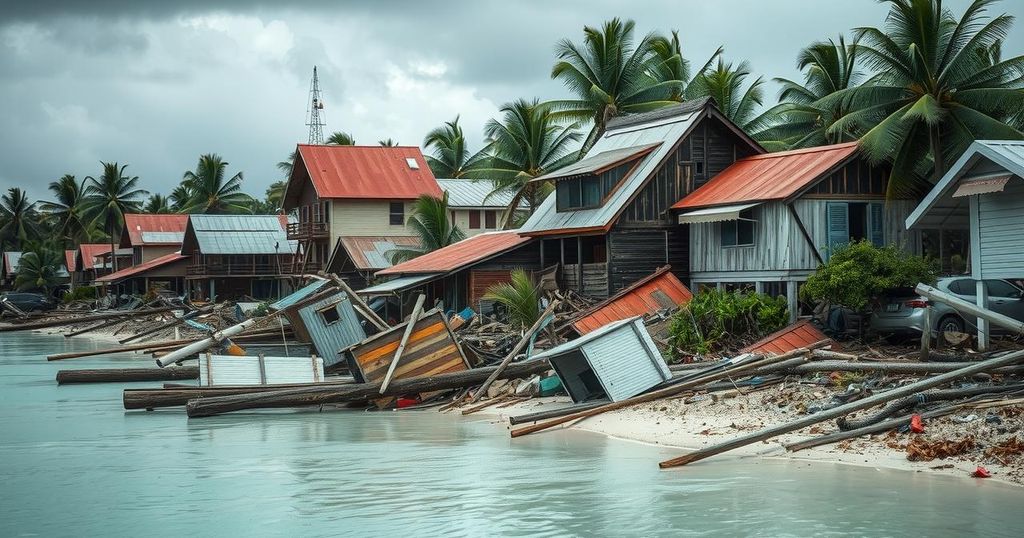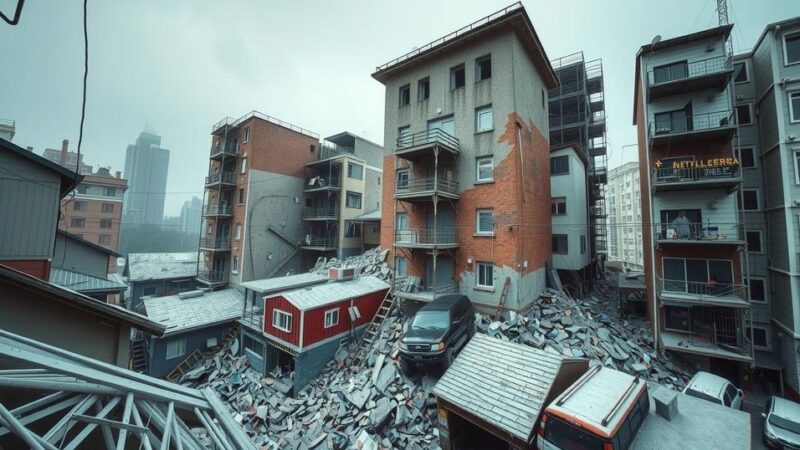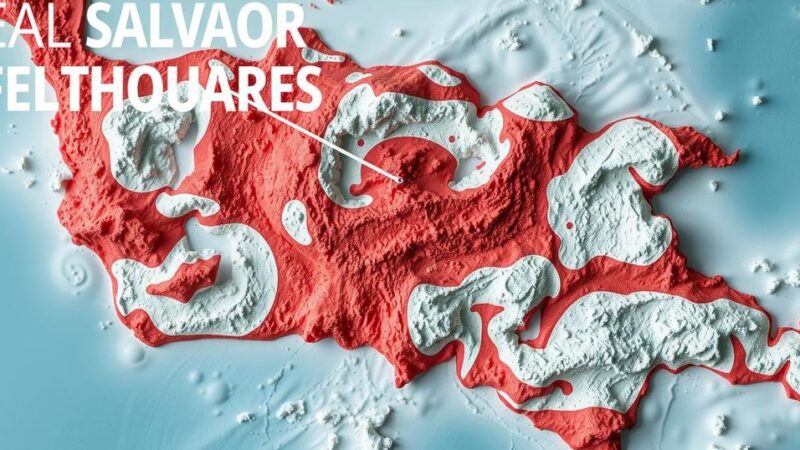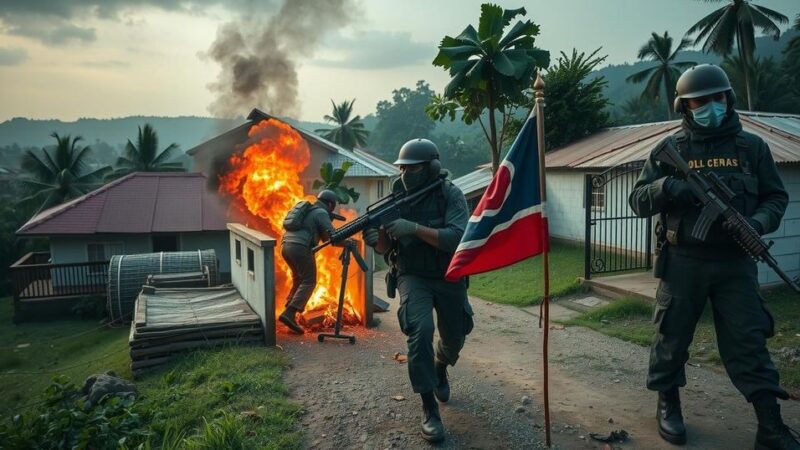Cyclone Chido struck Mayotte, leading to a feared death toll in the hundreds, potentially thousands. Significant infrastructure damage, particularly in slum areas, has been reported, prompting urgent rescue and humanitarian efforts from France. The cyclone’s effects are felt in nearby regions as well, raising concerns about the growing impacts of climate change on vulnerable populations.
The devastating impact of Cyclone Chido in the French territory of Mayotte has prompted fears of a death toll that may range from several hundred to thousands, according to François-Xavier Bieuville, the island’s Prefect. The cyclone, recognized as the worst to strike Mayotte in 90 years, caused extensive destruction on Saturday, including the devastation of public infrastructure such as the airport, and led to widespread power outages. Rescue teams and supplies have been dispatched from France amidst urgent efforts to assess and address the immediate needs of the affected population.
According to initial reports from the French Interior Ministry, the cyclone has resulted in at least 11 confirmed fatalities and over 250 injuries, with those numbers expected to rise significantly as rescue operations continue. Mayotte, home to approximately 300,000 residents and classified as France’s least affluent territory, suffered severe damage, particularly in slum areas characterized by informal housing. Bieuville stated, “This figure is not plausible when you see the images of the slums,” emphasizing that the actual human toll is likely far higher than the current estimates.
As Cyclone Chido lashed through the region, reaching wind speeds of 220 kph (136 mph), its effects extended to neighboring islands such as Comoros and Madagascar, and it made landfall in Mozambique, where further threats to millions loom. French President Emmanuel Macron expressed solidarity with the affected residents, acknowledging the tragic circumstances. Meanwhile, Pope Francis offered prayers for those impacted by the disaster.
In response to the crisis, the French government is deploying a significant number of emergency personnel and resources, including police forces to maintain order and prevent looting. Humanitarian efforts are focusing on restoring electricity and ensuring access to clean water for the crisis-hit communities. Reports from local residents like Chad Youyou illustrate the severity of the destruction, as many neighborhoods have been completely obliterated by the cyclone’s fury.
The occurrence of such powerful cyclones has underscored the growing impacts of climate change, with studies indicating an increase in the frequency and severity of these natural disasters. For regions like southern Africa, which remain ill-equipped to handle such humanitarian crises despite contributing minimally to global warming, calls for international support to combat the effects of climate change continue to resonate.
This calamity serves as a reminder of the urgency needed in disaster preparedness and response, particularly in vulnerable regions, reaffirming that greater assistance is crucial in addressing the realities of climate change and its influence on severe weather patterns.
Cyclones in the southwestern Indian Ocean have posed significant challenges to countries like Mayotte, Comoros, Madagascar, Mozambique, Malawi, and Zimbabwe. The region experiences a cyclone season between December and March, often leading to catastrophic consequences for low-income communities. Over recent years, powerful cyclones have resulted in thousands of casualties and widespread destruction. Climate change exacerbates this threat, increasing the frequency and intensity of these natural disasters, particularly in regions that face systemic socioeconomic vulnerabilities. The local infrastructure often struggles to cope following such devastating events, highlighting an urgent need for international aid and preventive measures to accommodate growing humanitarian crises.
The devastation wrought by Cyclone Chido in Mayotte has prompted fears of a dramatically high death toll, overwhelming local resources and highlighting the critical condition of the affected regions. As rescue efforts intensify, the focus remains on addressing immediate humanitarian needs while grappling with the evident impacts of climate change. This situation calls for a collaborative response from the global community to support vulnerable populations facing the consequences of increasingly severe weather patterns.
Original Source: www.cbsnews.com







